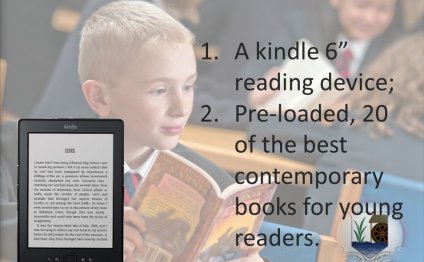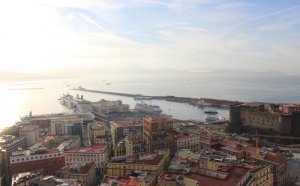
Best Contemporary books
When we think of English lit classes, we usually think of Hawthorne, Melville, Austen, Tolstoy, Dickens. But the times, they are a-changin’ and so too are the books we read, both in and out of the classroom. Since the millennium, a lot of good—nay, great—books have been published by masterful authors, all of whom are deserving of a spot on a high school or college curriculum. And as evidenced by these 11 novels, whoever said there were no new ideas didn’t know what they were talking about.
‘The Art of Fielding’
By Chad Harbach
(Back Bay Books)
There was a lot of hoopla around the acquisition and publication of Harbach’snovel and it’s well-deserved. “The Art of Fielding” weaves just the sort of rich, distinctly American tapestry that classrooms embrace. And it’s set at a small Midwestern university, providing even more catnip to English professors everywhere. Henry Skrimshander is a baseball phenom, brought to Westish College by fellow student Mike Schwartz to turn the program around. While Henry unravels on the field, Mike falls for the university president’s daughter, who is struggling to find herself. Meanwhile, the university president falls for someone he never expected. Full of flawed, rich, aspiring characters, “The Art of Fielding” is layered and lovely. As Andrew Corsello writes in GQ, “Not since ‘Lonesome Dove’ have I been so sorry to let a group of characters go."
‘Life of Pi’
By Yann Martel
(Mariner Books)
Full of fantasy, adventure and spirituality, “Life of Pi” is just the thing to engage young minds. After his ship sinks (taking his family with it), Pi finds himself stranded on a boat with an orangutan, hyena, zebra, and Bengal tiger named Richard Parker for a companion. The son of a zookeeper, Pi uses his knowledge and wits to co-exist with the tiger, who takes care of the other animals in short order. Having explored various faiths, Pi calls upon his curiosity and resilience during the 227-day harrowing and hallucinatory journey. For anyone looking to think outside of the box of the classroom, Martel’s fable-like novel will take them on a rich flight of fancy.
‘Extremely Loud and Incredibly Close’
By Jonathan Safran Foer
(Mariner Books)
Safran Foer gives the tragedy of 9/11 a personal face in the character of Oskar Schell. Nine years old, this precocious kid is an inventor, Shakespearean actor, corresponds with the likes of Stephen Hawking, and how he’s a detective. Armed with a key that belonged to his father (who died in the World Trade Center), he is driven to find the matching lock. This little big man meets all sorts of lost (or, at least, coping) souls during his New York City walkabout, which ultimately brings him back to where he started his search. Safran Foer’s novel is about the journey of grief, with an unforgettable protagonist at its heart; be prepared to carry this book and its characters with you for a long, long time.
‘The Amazing Adventures of Kavalier & Clay’
By Michael Chabon
(Picador)
Another worthy contender for the Great American Novel, Chabon’s wonderful book focuses on two cousins. Artist as well as escape artist, Joe Kavalier has just escaped Nazi-invaded Prague and moved in with relatives in New York City. Namely, his Brooklyn cousin Sammy Clay, a fast-talking, imaginative hustler looking to break into the comic book business. Kavalier & Clay do just that, creating superheroes inspired by their own experiences and dreams. They live vicariously through their creations; their first issue of ‘The Escapist’ shows Hitler whacked but good on the cover. Joe’s desperate attempts to get his family out of Europe are reflected in increasing intensity in his illustrations. This novel, set against the golden age of comic books, is about the American dream of reinvention as well as escapism, magic, and the power of art. Chabon has truly created his own work of art.
‘The Namesake’
By Jhumpa Lahiri
(Mariner Books)
After breaking onto the literary scene with her short story collection ‘Interpreter of Maladies, ’ Jhumpa Lahiri followed up with this novel on the challenges of the immigrant experience. After an arranged wedding, Ashoke and Ashima move from Calcutta to Cambridge, where Ashima resists assimilation while her husband adapts with greater ease. But it’s their son Gogol Ganguli who really stumbles as he tries to navigate between his heritage and his life in America. Burdened with expectations by his family, Gogol must learn to define himself and make his own way and decisions. An elegant novel about identity, any student—any person—can relate to the challenges of and opportunities in reinvention.
‘Middlesex’
By Jeffrey Eugenides
(Picador)
Born to the Stephanides family, Calliope is born in 1960 Detroit. But her story starts much earlier, with her immigrant grandparents (and brother and sister) Desdemona and Lefty leaving war-torn Turkey for America. Eugenides’ novel spans decades—from Desdemona and Lefty’s immigrant experience of the 20s and 30s to Cal’s parents’ attempts to climb the social ladder. But it’s Calliope’s story that anchors the novel. She starts out a girl but finds her gender not such a simple matter when she reaches adolescence. Callie become Cal as this singular narrator takes us on a journey as she delves into her family’s genetic history. Eugenides has giving us a sweeping epic, along with a personal story about the search for identity.
‘The Brief Wondrous Life of Oscar Wao’
By Junot Diaz
(Riverhead Trade)
Young Oscar has big dreams—he wants to be a science-fiction writer of Tolkien proportions and he wants to fall in love—but as an overweight Dominican, he has a problem. Namely, a curse that has followed his family from the Dominican Republic and continues to haunt them in New Jersey. Told from multiple perspectives and dipping in and out of languages and vernaculars, Diaz’s novel presents a sweet, tragic take on a lovesick ghetto nerd bearing 500 years of historical and familial bad luck on his sizable back.
‘The Road’
By Cormac McCarthy
(Vintage)
With an impressive body of work under his belt, Cormac McCarthy ups his game with what might be his masterpiece. Moving through a burned and desolate America, a nameless father and son move doggedly toward the coast, keeping hope alive even as they are confronted with hunger, hypothermia, and—yes—roving cannibals. McCarthy’s Pulitzer Prize-winning vision of a post-nuclear world explores weighty themes of man’s destructiveness, tenacity, and love, all with McCarthy’s lyrical prose.
RELATED VIDEO

![[PDF Download] Best Contemporary Monologues for Women 18](/img/video/pdf_download_best_contemporary_monologues_for.jpg)

Share this Post
Related posts
Best contemporary Novelists
Lindsay Duguid, the fiction editor of the Times Literary Supplement, concedes that although lists are “intrinsically vulgar”…
Read MoreBest Contemporary Literature
If you re hankering for the Greek isles but can t manage an Aegean vacation this summer, why not go there through fiction…
Read More










